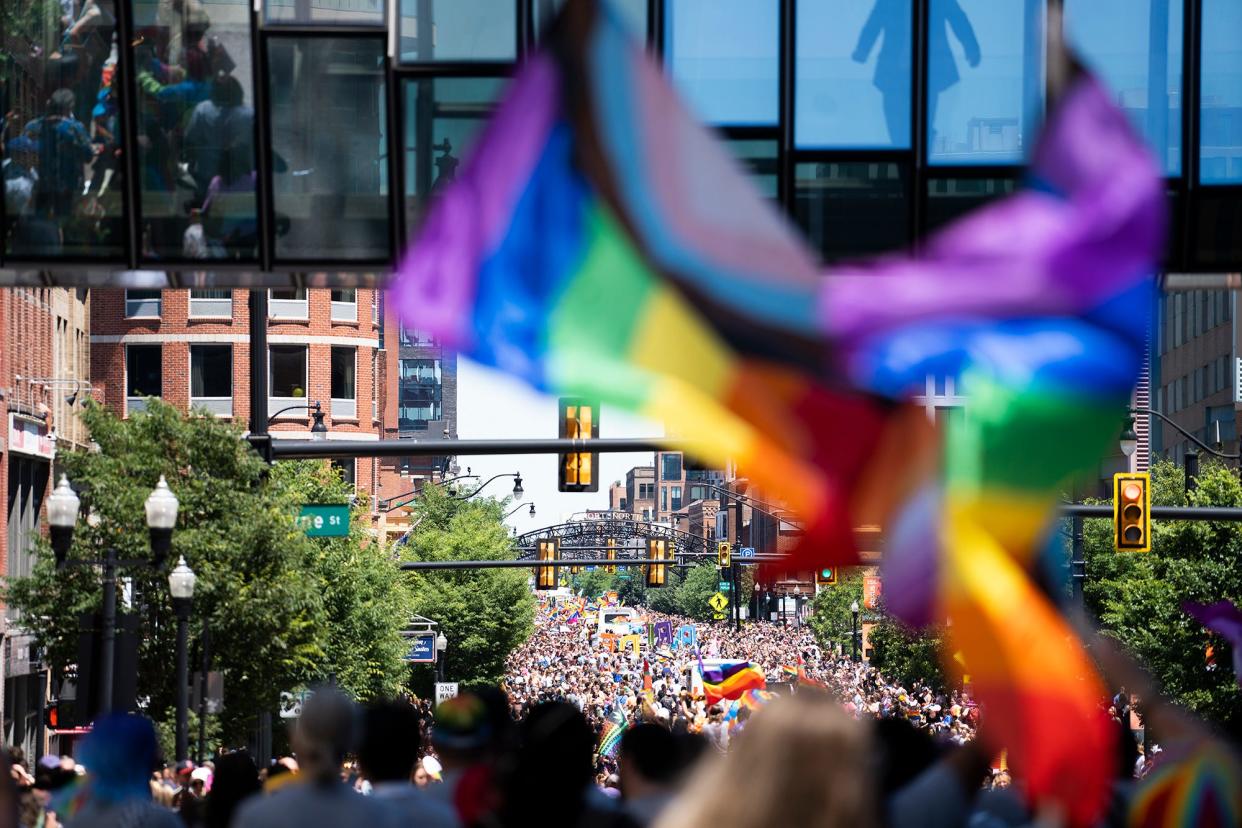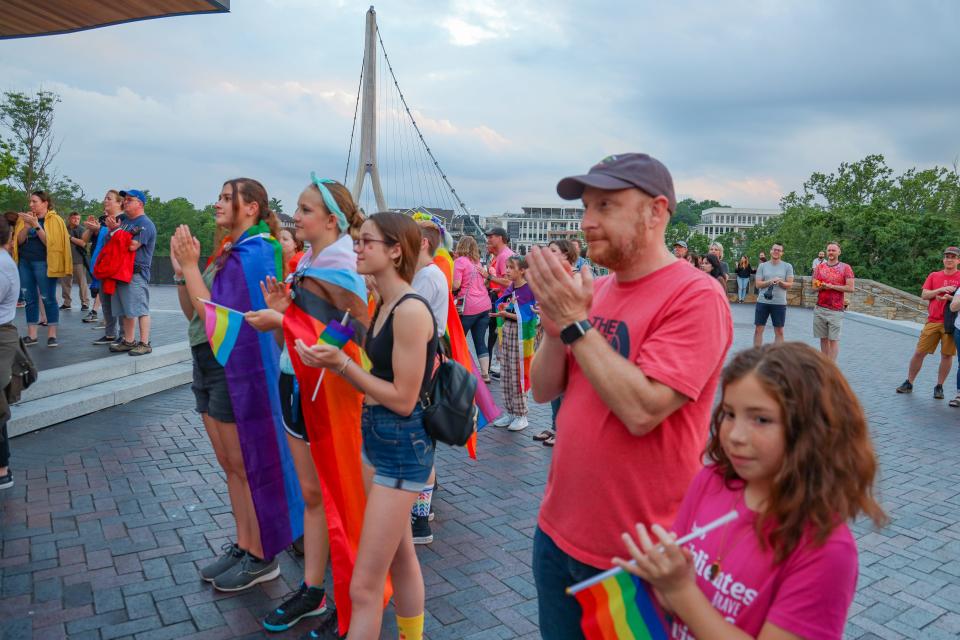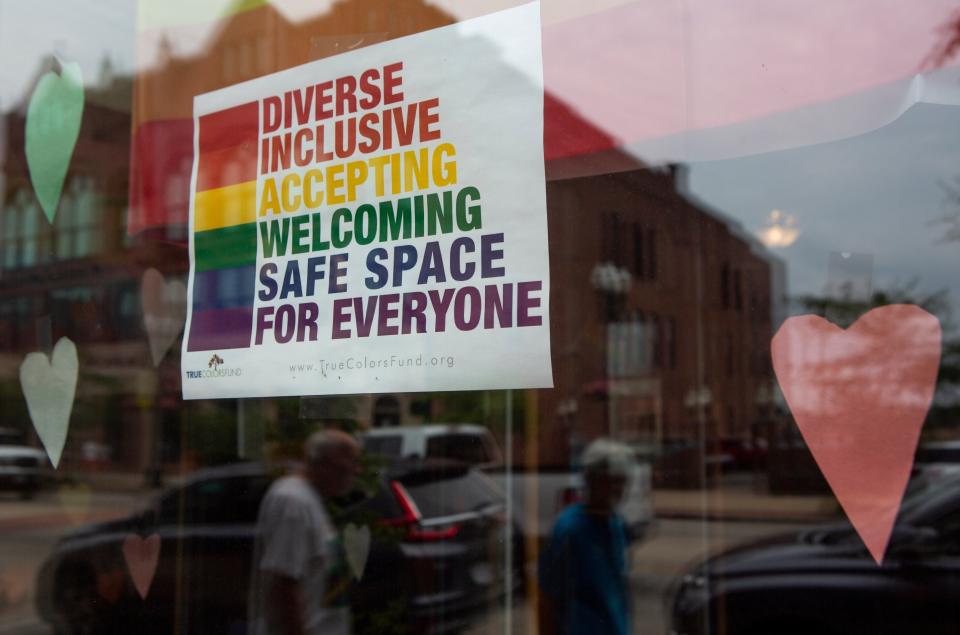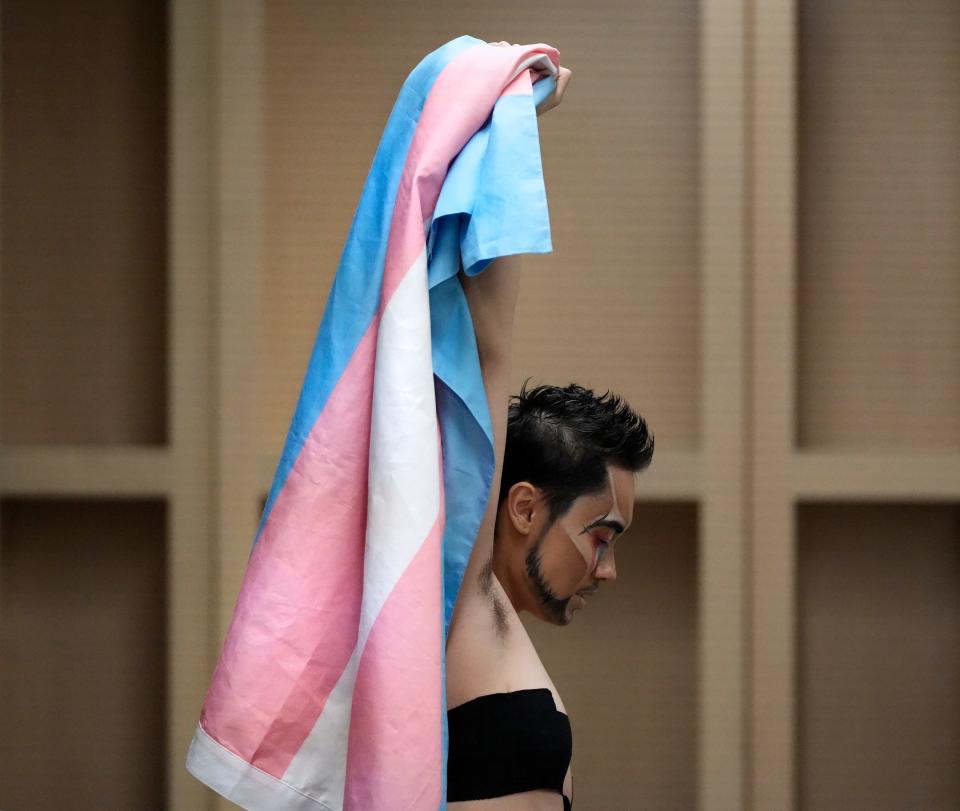8 Ohio cities are ranked highly for protecting LGBTQ people. Advocates say it's not enough

Eight of Ohio's cities get top marks when it comes to protecting equality for LGBTQ people.
The Human Rights Campaign, a national LGBTQ civil rights organization, recently released its 2023 Municipal Equality Index. The index rates how inclusive a city’s laws, policies and services are of LGBTQ+ people who live and work there, from zero to 100.
Among the cities with top marks were Akron, Cincinnati, Cleveland, Columbus, Dayton, Dublin, Lakewood and Toledo. Every city scored over 90, with the majority scoring 100s, except for Toledo (94) and Lakewood (96).
The MEI rated 506 cities throughout the country in 2023, and only 129 received a perfect score.
Since 2017, Dublin's score has risen from 45 to 100.
"That reflects six years of community-driven conversations, community organization and deep conversations and reflection with those in power with the ability to pass these local protections," said Alana Jochum, executive director of Equality Ohio. "I'm really proud that our cities are doing well."
But it's not enough, Jochum said.

Advocates: Why city protections don't go far enough for Ohio LGBTQ people
Despite these highly rated cities, there aren't enough protections in the state of Ohio for LGBTQ people, advocates say. Those include, but aren't limited to, policies that ban discrimination in housing, employment and public accommodations.
Though a federal Supreme Court decision in 2020, Bostock v. Clayton County, established that companies can't discriminate based on transgender identity or sexual orientation when hiring, and that applies to companies with 15 or more employees. Ohio lawmakers could pass a law that would apply to smaller businesses too, Jochum said.

Without statewide laws protecting LGBTQ people from discrimination across city boundaries, the state just has a "patchwork" of protections that mean people "lose their civil rights on their commute," Jochum added. It also makes navigating life harder in Ohio.
That's why there are ongoing efforts statewide, including a push to pass a nondiscrimination bill at the Statehouse.
The Ohio Fairness Act, Senate Bill 132, was reintroduced in the Senate in June 2023 and sent to committee in September. It has been introduced 11 other times and has a history of bipartisan support, including in 2021 when Sen. Michael Rulli (R-Salem) and Sen. Nickie Antonio (D-Lakewood) were its primary sponsors.

Despite the support, the bill didn't make it further than a senate committee that year.
Still, the bill has many backers, including Ohio Business Competes, a nonpartisan coalition of hundreds of businesses working to get nondiscrimination policies at the state level to attract the best talent and grow the economy.
The five pending bills that target transgender peoples' rights at the Statehouse now and the "patchwork" of protections across the state are not OK for a state that's trying to attract large companies, Jochum said.
Tracking city protections for LGBTQ people
The Municipal Equality Index is important because it allows LGBTQ people to see where they are protected at the local level, especially in states like Ohio where there isn't universal protection, Jochum said.
It also helps give local leaders a roadmap for how to distinguish their municipalities as inclusive, Jochum said.
"It evolves and it helps cities evolve with it," she said.
The Human Rights Campaign also has a State Equality Index, and the group's 2022 report found that Ohio has a long way to go.

"Even when anti-LGBTQ+ extremists in state capitals are working to undermine their progress, mayors and city councilmembers keep fighting to make sure that LGBTQ+ people in their communities — especially trans people — are supported and lifted up to the fullest extent possible," said Kelley Robinson, president of the Human Rights Campaign, in a statement.
Twenty-one states have broad protections for LGBTQ people, but Ohio ranked the lowest in its index, among other states where advocates focus on basic LGBTQ equality.
In Ohio, the seventh most populous state, only 35 municipalities have nondiscrimination protections, according to Equality Ohio, which accounts for about 31% of the state.
“Your civil rights, your safety and protection depend upon your ZIP code,” Jochum said.
The state of LGBTQ rights across the United States
In June, the Human Rights Campaign declared a state of emergency for LGBTQ people because of an "unprecedented level of attacks" against them by state legislatures.
It is the first time the group has done this, and it said in an issue brief that the "attacks" are "a coordinated, top-down moral panic driven by a few well-funded and well-connected organizations."
The more than 500 bills introduced this year across the nation, including the five that target transgender rights in Ohio, "aim to legislate LGBTQ+ people out of all aspects of daily life," the campaign said. They do that by taking away existing legal protections, decreasing the visibility of LGBTQ people and reducing their cultural and social acceptance, according to the campaign.

'Discriminatory legislation': Five Ohio bills targeting transgender Ohioans
When it comes to the MEI, more cities got perfect scores than ever before, but the campaign points out that cities can only do so much.
It's important to remember when looking at the MEI, the campaign wrote, that "it is an evaluation of the laws and policies of a city, not an evaluation of 'best places to live.'”
Cities that score high may still lose LGBTQ residents since state legislatures are "actively driving LGBTQ+ people and their families away with hostile, discriminatory laws," according to the Human Rights Campaign.
"Cities and towns around the country are stepping up each and every day, finding new and innovative ways to empower LGBTQ+ people in the face of a dire national state of emergency," Robinson, of the Human Rights Campaign, said. "This year’s Municipal Equality Index shows the results of their dedication, while acknowledging the increasingly hostile environment in which they must govern."
dking@dispatch.com
@DanaeKing
This article originally appeared on The Columbus Dispatch: In national LGBTQ equality ranking, eight Ohio cities get top marks

